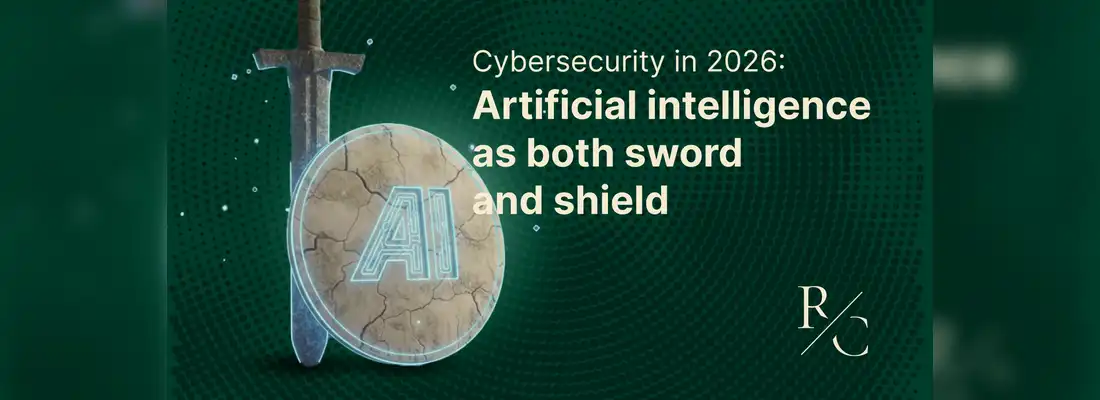NIST Incident Response Framework 2024: Updates and Best Practices
Date: 24 April 2024
.webp?width=1170&name=184655049_m_normal_none%20(1).webp)
The National Institute of Standards and Technology (NIST) created the NIST Cybersecurity Framework (CSF) in 2014. Since then, this landmark document has served as an invaluable tool for organisations around the world to reduce cybersecurity risks and improve cyber incident response.
In 2018, NIST updated the cybersecurity guidance and released version 1.1 of the CSF. In 2024, NIST released the 2.0 edition of this framework which is no longer designed just for organisations working in critical infrastructure. It addresses the cybersecurity needs of organisations across sectors and sizes, from the smallest schools to NGOs, regardless of the level of existing cybersecurity maturity.
In this article, we aim to quickly sum up the updates and best practices in the NIST Cybersecurity Framework 2.0. We also show you easy ways to achieve compliance with version 2.0 of the framework and the best practices it recommends.
Topics covered in the blog:
1. Updates & Changes to NIST Incident Response Framework 2024
2. How to become compliant with NIST CSF 2.0?
NIST CSF Changes 2024
- Organisational Relevance: The NIST Cybersecurity Framework now applies to organisations across industry verticals and scale. While its relevance was earlier limited to critical infrastructure, it now encompasses the likes of government bodies, academia, not-for-profit societies - all of which have shown to be equally vulnerable to cyber crime in recent years.
- Tools & Resources: NIST has now created a wealth of tools and resources to help organisations ease into its Incident Response Framework. The resources are meant to help different organisations with curated ways to make the framework compliance easier.
The Reference Tool, for example, allows users to explore the updated framework with human and machine-readable versions. There is also a very informative reference catalogue which you can use to cross-reference the Core of the NIST Incident Response Framework with other important cybersecurity guidance documents.
An invaluable tool which NIST has now released are the Quick Start Guides. These guides will help smaller organisations implement NIST guidance based on organisational and community profiles. Those with modest cybersecurity incident response plans in place, will get help in improving their cybersecurity posture. It also contains guides on how to acquire partners for third-party products and services in a smarter way.
- New ‘Govern’ Function: Everyone who is anyone in the field of cybersecurity probably knows the 5 core functions of the NIST CSF version 1 - Identify, Protect, Detect, Respond and Recover. NIST has now added a sixth function i.e. Govern, taking the total number to 6. Govern features as the first function, before Identify. It is meant to guide organisations to maintain a strong control over their risk management strategies and policies.
- Supply Chain & Vendor Security: The new EU DORA regulation focuses heavily on third-party security and vendor relationships. The update to NIST CSF has also placed significant focus on this critical aspect of organisational cybersecurity. The new version of the cybersecurity framework expands heavily on supply chain based risk management in the Govern function.
Achieve NIST CSF 2.0 Compliance with Cyber Management Alliance
Cyber Management Alliance is the frontrunner in global cybersecurity consultancy with a focus on Cyber Incident Response. We’ve been helping several clients achieve compliance with the NIST Cybersecurity Framework over the years and are now geared up for NIST CSF 2.0. Here’s how you too can stay up to date with the refreshed guidance on best practices in the NIST Incident Response Framework 2024.
- Cyber Incident Response: Cyber Management Alliance is the creator of the NCSC Assured Training in Cyber Incident Planning & Response. We can help your organisation improve its cybersecurity incident response capabilities tremendously, no matter your industry or size.
Our Virtual Cyber Assistant service also helps you create or review your Incident Response Plans - a critical component of NIST Compliance. These plans must reflect the 6 functions of Incident Response as per the Framework’s updated version.
We also help you conduct scenario-based cyber crisis tabletop exercises that evaluate the effectiveness of your incident response plans. These tests help your key stakeholders rehearse their response to real-world attacks and practise decision-making in a simulated attack environment.
- NIST Cybersecurity Incident Response Health Check: We also offer a one-day NIST cybersecurity Health Check. It assesses your organisation’s current cybersecurity maturity against the updated NIST Incident Response Framework. We then produce a concise report highlighting your organisation’s readiness level to handle cyber attacks.
The report also contains recommendations on compliance and overall incident response readiness. This health check can help you understand the work you need to do to become compliant with the updated NIST CSF.
- Incident Response Playbooks: Our NCSC Assured Training in Building and Optimising Incident Response Playbooks is a definitive pathway to creating NIST compliant playbooks. With ready-to-use Playbook templates and guides, you can inch closer to your incident response goals in conjunction with the basket of resources that NIST CSF 2.0 makes available.
- Risk Management: The core component of the NIST Incident Response Framework 2024 is better Risk Management and Governance. This is precisely what our cybersecurity consultancy services focus on.
Reflecting the vision of NIST CSF 2.0, our Virtual Cyber Assistant service is suitable for businesses of all scales, especially small to medium ones. So if you’re starting your journey towards improved cyber maturity and are finding yourself in a maze, we can help. This service is extremely affordable with multiple packages and payment options that will match your exact needs.
Our highly experienced consultants have helped hundreds of businesses implement an effective Risk Management Framework, identify assets and classify them. We can help you create new or review existing Information Asset Registers, implement a Risk Assessment Methodology and a Risk Treatment Plan.
- Supply Chain Cybersecurity Management: Our Virtual Cybersecurity Consultants can review the existing cybersecurity controls across your supply chain. We also help you refine your supply chain contracts, data sharing agreements and applicable cybersecurity controls. These are also critical to become compliant with the updates and best practices emphasised in the updated NIST CSF 2.0.





.webp)
